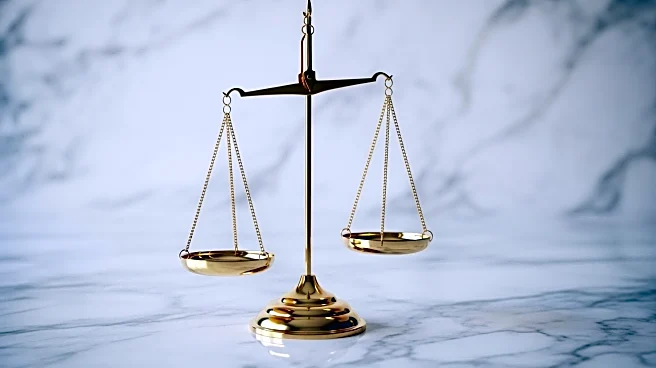What's Happening?
The French government, led by Prime Minister Sebastien Lecornu, is facing a potential censure from leftist lawmakers over its proposed austerity budget. The controversy centers around the absence of a tax on the ultra-wealthy, which the Socialists demand
be included. The government is attempting to pass a spending bill through a divided parliament, having already seen two predecessors toppled over similar cost-cutting measures. Lecornu has expressed willingness to engage in open debate and amend the budget proposal but has resisted the inclusion of a wealth tax. The Socialists, a key swing group, have threatened to overthrow the government if their demands are not met, emphasizing the need for tax justice and targeting the ultra-rich.
Why It's Important?
The outcome of this political standoff could have significant implications for France's economic policy and political stability. A wealth tax could potentially raise substantial revenue, estimated at 20 billion euros annually, from a small number of wealthy households. This could address income inequality and fund public services. However, the government's resistance to such a tax reflects broader tensions over fiscal policy and economic management. The situation also highlights the challenges faced by President Emmanuel Macron's administration in maintaining a parliamentary majority and enacting reforms. The resolution of this issue could influence France's economic trajectory and set a precedent for wealth taxation in Europe.
What's Next?
The French parliament is expected to continue debates on the budget, with potential amendments being discussed. The Socialists have set a deadline for progress on the wealth tax by Monday, threatening to withdraw support if their demands are not met. The government may need to negotiate further to avoid a censure vote and ensure the passage of the budget. The outcome will likely depend on the ability of Lecornu and his administration to broker a compromise that satisfies both fiscal conservatives and leftist lawmakers.
Beyond the Headlines
The debate over the wealth tax touches on broader issues of economic inequality and the role of government in wealth redistribution. The proposed Zucman tax, named after economist Gabriel Zucman, targets the mega-wealthy and could serve as a model for other countries grappling with similar issues. The political dynamics in France, including the rise of the far right and the loss of a centrist majority, reflect wider trends in European politics, where economic policy and social justice are increasingly contentious topics.
















